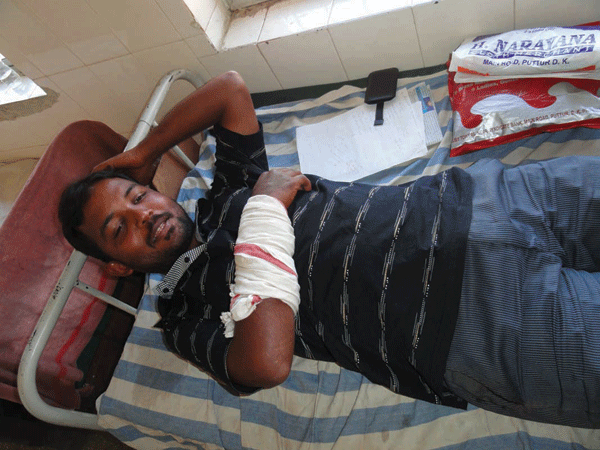Mangaluru: On a scorching summer Friday, April 18, the usually quiet locality of Adyar Kannur in Mangaluru transformed into a powerful symbol of resistance and unity. A massive public protest, led by the Karnataka State Ulema Coordination Committee, witnessed an overwhelming turnout of nearly 3,000 people voicing their dissent against the Central Government’s recent amendments to the Waqf Act.
The protest wasn’t just an outcry—it was a declaration of solidarity, discipline, and deep-rooted concern over the perceived infringement of religious and institutional autonomy.
Organized under the leadership and guidance of the Khazis from Dakshina Kannada and Udupi, the protest drew people from all corners of the region including Udupi, Dakshina Kannada, Chikkamagaluru, and Kodagu districts. The protest venue, Sha Garden in Adyar Kannur, turned into a sea of people as participants gathered from various towns and villages despite the scorching afternoon sun.
From 2 PM onwards, people began arriving in large numbers. The influx of participants led to significant traffic congestion on the adjoining highways, compelling authorities to reroute vehicles to maintain order. Inside the city and surrounding areas, many shops remained closed, partly due to the event and partly as it coincided with the sacred Jumma prayers.
Security was handled with tight coordination—police personnel were stationed at all major junctions, crossings, and strategic points. Alongside them, volunteer marshals maintained decorum at the protest site, managing the crowd efficiently and ensuring cleanliness by removing empty water bottles and litter.
Chants of “Azaadi” (freedom) echoed through the grounds as protesters raised their voices in peaceful opposition to the Waqf Amendment Bill. Despite the emotionally charged atmosphere, the protest remained peaceful. The organizers consistently appealed to the crowd via loudspeakers to maintain harmony and avoid any provocative slogans.
Drone surveillance and videographers were deployed for complete documentation of the event, enhancing both the security and transparency of the protest. However, the sheer number of participants caused temporary network disruptions, affecting mobile communication in the area.
Adding a patriotic touch, several protestors were seen waving the Indian national flag, reinforcing that the movement was deeply rooted in constitutional values and democratic expression.
Among the dignitaries present were UK Abdul Azeez Darami Chokkabettu, Dr. M S M Zaini Kamil, Abdul Khader Darami Kukkila, Kasim Darami Kinya, Aboobakkar Siddique Montugoli, Mehboob Sakafi Kinya, and Ashraf Kinara. Their presence underlined the seriousness of the gathering and provided moral and spiritual guidance to the demonstrators.
The peaceful protest stood as a clear, disciplined, and democratic expression of the Muslim community’s concern, sending a strong message to the authorities: religious rights and institutional independence are not to be tampered with.











Comments
Add new comment